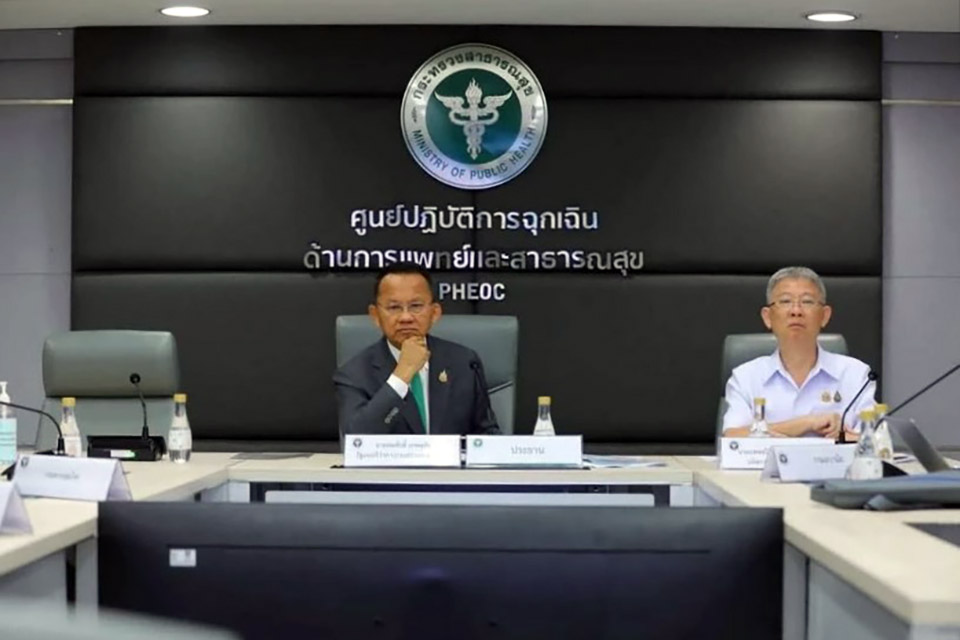
BANGKOK, Thailand – Somsak Thepsuthin, Minister of Public Health, chaired an urgent meeting to address the rising PM 2.5 air pollution levels, which have surpassed safety thresholds in 14 provinces, impacting public health, January 9. The meeting, attended by senior officials including Dr. Opas Karnkawinpong, Permanent Secretary of the Ministry of Public Health, and Dr. Amporn Benjapolpitak, Director-General of the Department of Health, outlined four primary measures to mitigate health risks and protect vulnerable populations.
Minister Somsak emphasized the need for preparedness across provincial health services to combat the rising air pollution levels, which have exceeded safety standards in 53 provinces from October 11, 2024, to January 9, 2025. Fourteen of these provinces have recorded health-related impacts, with levels expected to remain high until January 15, 2025.
To assist affected communities, the ministry has established 4,700 dust-free rooms in 56 provinces, including 3,009 in public health facilities, 858 in schools and child development centers, 457 in office buildings, and 376 in restaurants. Additionally, 1,338 “anti-dust nets” have been distributed across 34 provinces, targeting bedridden patients and those confined to their homes.
The ministry plans to distribute face masks and anti-dust nets to at-risk groups, including outdoor workers and health volunteers, alongside campaigns to raise awareness about mitigating health risks from air pollution. Proactive health screenings in communities with high PM 2.5 levels will focus on respiratory, cardiovascular, dermatological, and eye-related conditions.
The four key measures announced include:
Public Awareness and Knowledge Promotion – Providing information and alerts, especially to high-risk groups such as children, pregnant women, the elderly, and individuals with respiratory or heart conditions, using digital tools and media.
Health Impact Prevention – Protecting vulnerable groups by promoting work-from-home policies and avoiding outdoor activities during peak pollution periods.
Medical and Public Health Services – Deploying health teams to support at-risk communities.
Enhanced Emergency Management – Upgrading the Public Health Emergency Operations Center (PHEOC) for prompt response.
Health officials urged the public to monitor PM 2.5 levels and follow safety recommendations, including staying indoors during high pollution periods, wearing protective masks when going outside, and avoiding outdoor exercise. Other self-care tips include staying hydrated, maintaining a clean living environment, and seeking medical attention if experiencing persistent coughing, chest tightness, nausea, or vomiting.
The minister warned that prolonged exposure to PM 2.5 could lead to severe respiratory, cardiovascular, and even cancer-related illnesses. Vulnerable groups, including children, the elderly, and individuals with chronic respiratory conditions, face heightened risks.
In response to questions about public awareness, Dr. Amporn highlighted the importance of monitoring air quality and seeking medical advice if experiencing irritation or abnormal symptoms. She also reiterated the need to wear masks and avoid outdoor activities during peak pollution levels.
Additionally, the minister briefly addressed the ongoing issue of enterovirus, associated with hand, foot, and mouth disease, emphasizing preventive measures such as eating freshly cooked food, using personal utensils, and maintaining good hand hygiene. Further updates are pending lab results.










